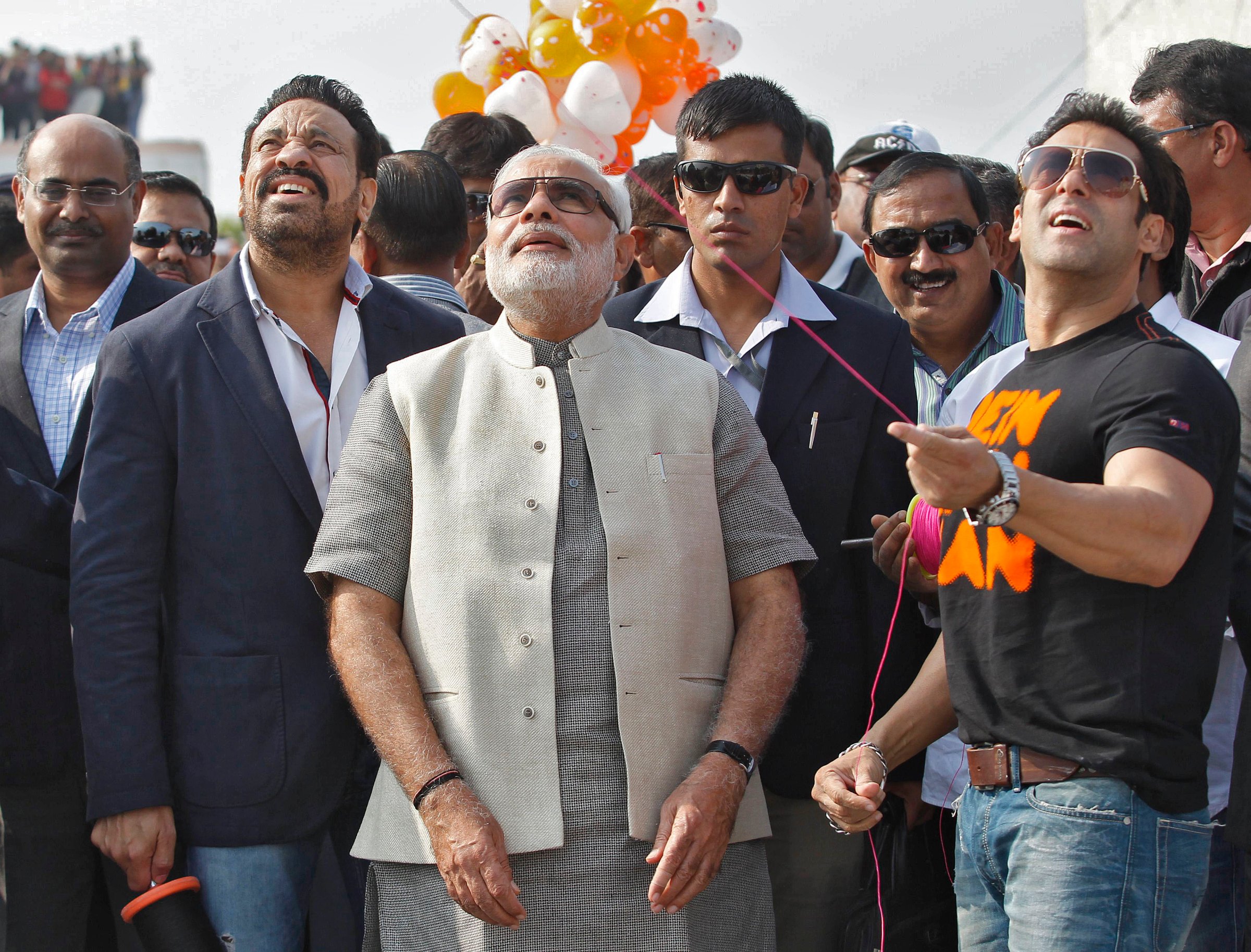
In Indian politics, star power matters as much as manifestos — if not more. Political parties have long relied on celebrities, especially Hindi film stars, to swell their vote banks, and despite talk of the electorate’s greater political maturity, 2014 doesn’t seem to be an exception.
Last week, Bharatiya Janata Party prime-ministerial candidate Narendra Modi got a helping hand from Bollywood. Legendary scriptwriter Salim Khan and his son, the actor Salman Khan, both Muslims, launched a version of Modi’s official website in Urdu.
The decision is noteworthy because Urdu is the mother tongue of many of India’s Muslims, whose attitude to Modi ranges from outright hostility to, at best, ambivalence. The reason is the religious violence that broke out in the western state of Gujarat in 2002, while Modi was chief minister (a post he still holds today). Though Modi has been cleared by courts of any complicity in the bloodshed that left over 1,000 people dead — mostly Muslims — criticisms that he did not do enough to stop the riots continue to haunt him.
The senior Khan has asked his fellow Muslims to move on. “When my mother died, I felt I wouldn’t be able to live, but I am alive today,” he said to reporters in Mumbai, India’s film capital, last week. “No one can justify the riots. I am sure Mr. Modi has learnt the lesson and that no one will die [under] his regime.”
However, the backlash from the Muslim community has been quick, with many of the younger Khan’s Muslim fans feeling betrayed by an actor whose career took off during the 1990s, when Muslim viewers, feeling marginalized by the Hindu majority, identified with him and made him an icon of their community.
According to pop-culture critic and media academic Shohini Ghosh, Salman Khan’s reputation already took a beating in January, when he performed at a government-organized festival in Saifai, the ancestral village of Uttar Pradesh’s chief minister, Akhilesh Yadav. Yadav has been accused of abetting the violence that broke out between Hindus and Muslims in the Muzaffarnagar district last September. Thousands of Muslims who fled their villages are still in relief camps and some Muslim clerics have called for boycotts of Salman Khan’s films.
At the same time, the political sway that celebrities like the Khans hold over voters remains. “I will vote for anyone Salman bhai [brother] supports,” says Waseem Ahmed, 22, a voter from northwest Mumbai. “I am not educated enough to understand manifestos.” And that is exactly what India’s politicians are counting on when they hitch their platforms to a Bollywood star.
More Must-Reads from TIME
- Where Trump 2.0 Will Differ From 1.0
- How Elon Musk Became a Kingmaker
- The Power—And Limits—of Peer Support
- The 100 Must-Read Books of 2024
- Column: If Optimism Feels Ridiculous Now, Try Hope
- The Future of Climate Action Is Trade Policy
- FX’s Say Nothing Is the Must-Watch Political Thriller of 2024
- Merle Bombardieri Is Helping People Make the Baby Decision
Contact us at letters@time.com